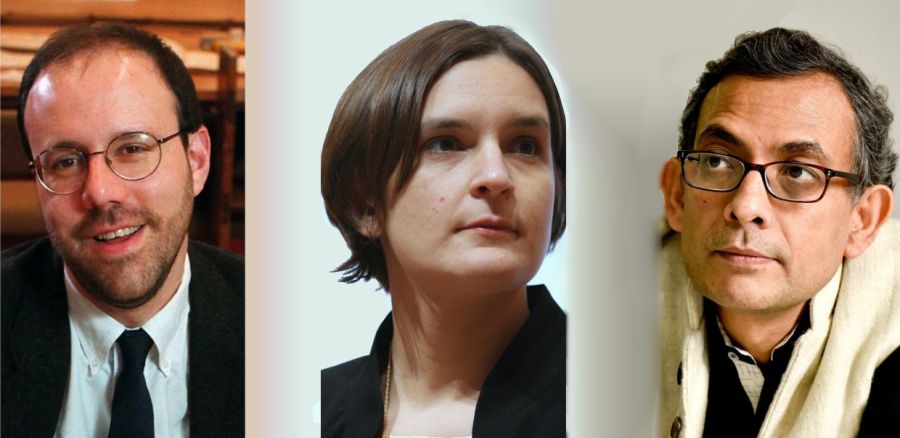THREE WINNERS FOR THE NOBEL ECONOMY PRIZE ESTHER DUFLO, ABHIJIT BANERJEE
AND MICHAEL KREMER |
|
| The Nobel Prize in Economics was awarded on Monday to Franco-American Esther Duflo and Americans Abhijit Banerjee and Michael Kremer for their work on reducing poverty in the world.
The first two, husband and wife in the civilian sector, are working on poverty and have established their laboratory at MIT in Boston. The Duflo-Banerjee tandem conducts research as close as possible to the field, from India to China to Chile or Mexico. They observe how the poorest people on the planet make their economic decisions. And this in order to define what would be the best policies to get them out of their condition. They introduced into the discipline the notion of real-world experimentation, thanks to random impact evaluations. From this meticulous work, the two researchers questioned some ideas about the fight against poverty, such as the usefulness of subsidizing the prices of basic food products, the effectiveness of micro-credit, or the link of causality between the poverty of a country and the famine situation that can be established there. These counter-current analyzes, the duo Duflo-Banerjee developed them in a book, Rethinking Poverty, published in France by Editions du Seuil. "I am delighted that social innovation is recognized on the same level as technological innovation," said the one who in 2012 was Obama's economic advisor on development. Michael Kremer, a former MIT graduate at Harvard, published a seminal article in Econometrica in 2004, in which he used a commonplace method of medical research called "randomized controlled trials." RCT), to evaluate the impact of administering a drug to Kenyan children on their school attendance. The principle of RCT is to evaluate the effectiveness of a treatment by comparing the situation of a sample of "treated" population, called "test population", to that of an untreated population, the so-called "control population". or "control group." Michael Kremer "has demonstrated how powerful this approach can be by using field experiments to test various interventions that can improve educational outcomes in western Kenya," says the Academy. The winners' work "has introduced a new (experimental) approach to obtain reliable answers on the best way to reduce poverty in the world," Göran Hansson, secretary general of the Royal Academy of Sciences, said in Stockholm. . Their research, along with Michael Kremer's research, has transformed the development economy, says the Swedish institution. "Despite recent and significant improvements, one of humanity's most pressing challenges is the reduction of poverty in the world, in all its forms," said the academy. Some 700 million people still live in extreme poverty, according to the World Bank. |
|
| Jaimie Potts for DayNewsWorld | |
 |
|




